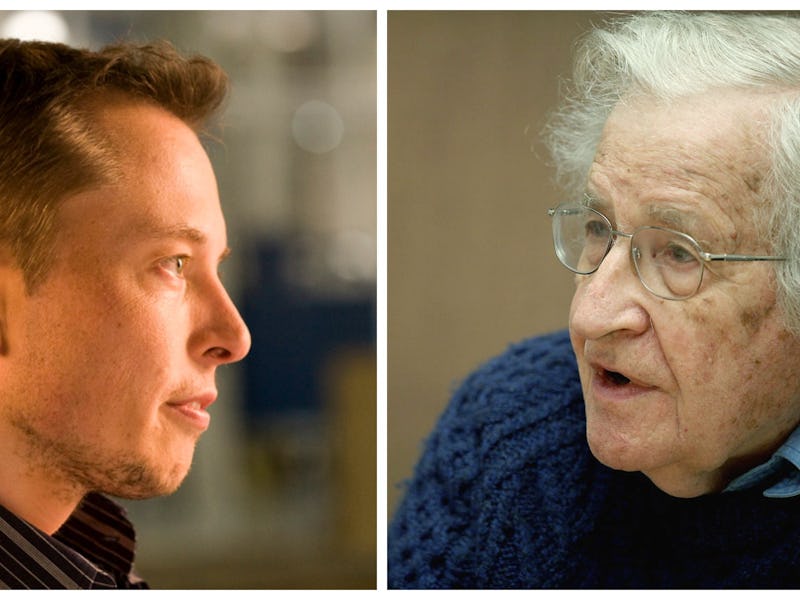Noam Chomsky Says Elon Musk's Neuralink Project Won't Really Work
Reclaiming motor function is one thing; connecting your thoughts to a computer is another.

At the end of April, Elon Musk announced that his new brain-computer interface company, Neuralink, will first focus on helping people with brain injuries before moving to allow you to communicate with your thoughts.
This week, Inverse spoke with Noam Chomsky, professor emeritus of linguistics at MIT, about Neuralink and the state of research on thoughts and language. While Chomsky thinks that using brain interfaces to help patients regain motor functions is a reasonable goal, he is seriously skeptical about the long term goals of Neuralink. Our knowledge about how we think is so limited, he says, that communicating with just your thoughts is far from being possible.
“What they’re probably doing is things like what I described, finding ways to detect by maybe electrical signals from the brain whether you’re planning to lift your arm. That’s within the domain of feasibility, and I know there is research going on about that,” Chomsky tells Inverse. “Trying to find out what I’m thinking, let’s say, there’s no way of developing technology because we don’t understand how to proceed.”
Using external electrodes or eye movement to control robots is based on motor functions and is significantly better understood than human-specific tasks like thought or language, says Chomsky. “The technology essentially tells us nothing in this area. It just is nowhere near advanced enough,” he says. Thoughts are particularly difficult because we don’t even have a good definition of a thought, he says. And since we can only prove that people think, research on thoughts has to happen in the human brain. This is incredibly difficult, because we don’t have non-invasive imaging technology that can see brain activity at anywhere near the scale of single neurons, Chomsky points out.
In the Wait But Why announcement of the goals of Neuralink, Musk says that some of the first patients that could be helped by the technology would be patients who had lost the ability to move their limbs due to severe brain injury or a stroke. He also included patients suffering from dementia or other kinds of cognitive loss to that list.
“Developing methods by which if I’m thinking of moving my hand, you might be able to pick up the electrical signals that say he’s trying to move his hand,” Chomsky says. That’s conceivable.” The research is in progress, says Chomsky. You can’t say that for something like memory and thought.
“Take Stephen Hawking, he’s able to communicate thanks to a lot of complex technology, which is designed for his particular disabilities and has enabled a brilliant mind to reach the outside world,” says Chomsky. “Without technology, that wouldn’t be possible, but that’s a very long way from technology that interprets thoughts, that we haven’t the slightest idea about.”